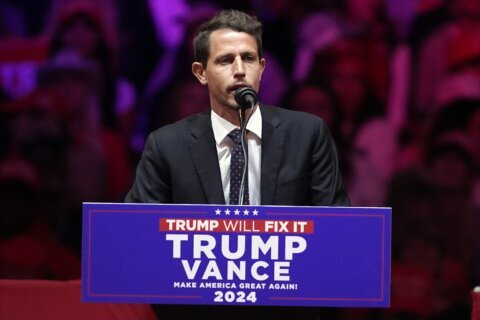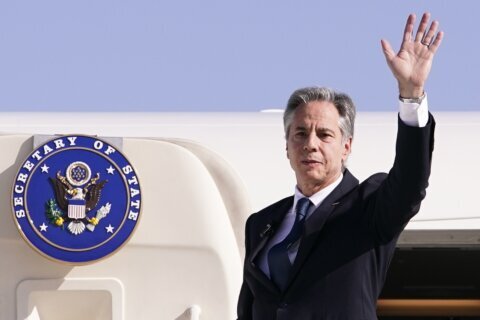There’s no one formula for making money in stocks, based on the portfolios of some of the wealthiest investors on earth. With all the talk about FAANG, MAMAA and the Magnificent Seven and the influence they have had on the market, you’d think these stocks would be where all the billionaires are invested.
Turns out, that’s not the case. While high-powered Wall Street investors do have investments in some of these stocks, a U.S. News & World Report analysis of some of the most prominent investors reveals a surprising diversity of stocks and even market sectors.
[Sign up for stock news with our Invested newsletter.]
It seems that the biggest takeaway from these billionaire portfolios is to stick with your own researched investing style and risk tolerance, whether that involves a penchant for Big Tech stocks or a more conservative exposure to defensive consumer staples — or even a portfolio of primarily index funds.
Yep, even billionaires use exchange-traded funds, or ETFs, that track broad indexes, which are among the best strategies for buy-and-hold investors, though they’re not always associated with the sexier investments of all-star hedge fund managers.
“Everyone has an opinion of what’s going on in the market, but experienced investors know, especially at this echelon of wealth, that at the end of the day you have no predictive ability,” says Michael Wagner, chief operating officer with Omnia Family Wealth. “You’re trying to build a resilient portfolio. How you build that resilient portfolio depends on your investment style.”
Wagner likes to use an analogy of building a house.
“You want to build a really strong house, but there are many different styles of houses that are equally strong,” he says. “These portfolio constructors are expressing different styles of building a resilient portfolio. There could be a multitude of reasons that they own one stock over another. But it’s the large macro asset allocation calls that will really give you an idea of their view of the market.”
That more holistic strategy — including non-stock investments like Treasurys or gold — may get you closer to a billionaire’s view of the market instead of trying to suss out why one wealthy investor buys shares of consumer staples companies versus names in the Magnificent Seven, Wagner says.
For example, it’s not necessarily a recessionary view if a fund manager owns Coca-Cola Co. (ticker: KO), which can be viewed as a generally defensive stock because people are going to need staples like food and drink no matter what the economy does.
But “if they’re down to 10% of the portfolio being in stocks and they have 70% in Treasurys, OK, maybe that is a recessionary call,” Wagner says.
The fact that these billionaire investors aren’t all piled into the same stocks that move the market when there is a risk-on attitude among investors could also be attributable to a greater sense of investing conservatism from people who have much more to lose — at least in outright dollar amounts — than the average investor.
“You want to build a really strong house, but there are many different styles of houses that are equally strong. These portfolio constructors are expressing different styles of building a resilient portfolio.” – Michael Wagner, chief operating officer with Omnia Family Wealth
“The lack of investment similarity is more about the desire to diversify and preserve capital as opposed to building more wealth with more contrarian views,” says Drayton D’Silva, CEO of Tower Hills Capital.
“Another explanation is that these investment firms are multi-strategy, so their investments in credit and private securities are not disclosed in public filings,” he says. “So it’s possible that these investors have chosen to get diversified, beta exposure from public equities, and get their alpha from credit and private investments.”
In an earlier post on LinkedIn, D’Silva explained this while looking at Soros Fund Management. Soros has many internal portfolio managers choosing among different strategies for investments across many hedge funds and private equity funds, D’Silva says.
“The complexity of their investment approach means that many positions listed in public filings serve as hedges for private investments, credit strategies or other forms of capital structure arbitrage that are not publicly disclosed,” he says. “Therefore, relying solely on public filings to replicate their stock investments will be misleading.”
There’s another cautionary note to think about when considering using billionaire investors’ holdings as an investment template. They only have to disclose their holdings once a quarter. So while it can be informative to note their holdings, by the time regular folks see them, these billionaires may already be on to the next big thing.
With all that in mind, let’s take a look at the diversity of sectors and stocks that make up the top public holdings of widely recognized billionaire investors:
[INTERACTIVE]
Tech Stocks
Microsoft Corp. (MSFT)
After Apple Inc. (AAPL), this tech giant is the biggest public company in the world based on market capitalization. So it’s relatively surprising to note that this company is only in the top holdings of four of the 10 funds. And that makes it the most widely held company among the 10.
Unsurprisingly, Microsoft is the top holding of the Bill & Melinda Gates Foundation Trust, as the former Gates is its co-founder. It comes in at No. 3 in tech-heavy Appaloosa Management’s portfolio and at No. 9 in the two others.
Interestingly, Microsoft is the only tech company held in the Gates trust’s top 10, unless you count Berkshire Hathaway Inc. (BRK.A, BRK.B) for its huge holding of AAPL stock. Instead of holding shares of Microsoft’s biggest competitor directly, Gates gets exposure through Berkshire.
Nvidia Corp. (NVDA)
Given that Apple is the second-biggest company in the world by market capitalization, you might think it would be more widely held among billionaires. Instead, three of the billionaire portfolios include Nvidia Corp. (NVDA), with some of those holdings in options. Appaloosa, the most tech-heavy of the 10, lists Advanced Micro Devices Inc. (AMD) and Oracle Corp. (ORCL) as its top tech holdings in addition to Microsoft and Nvidia.
This communication services behemoth is also a top holding in three of these billionaire portfolios, as is Meta Platforms Inc. (META), the only other communication services sector company included in more than one of the top 10 lists.
The only two companies that own both of these names in their top 10 are Bridgewater Associates and Appaloosa.
For Appaloosa, these companies along with communication services company Baidu Inc. (BIDU) seem to complement the fund’s heavy tech weighting. Other top picks are Alibaba Group Holding Ltd. (BABA), PDD Holdings Inc. (PDD) and Amazon.com Inc. (AMZN), which also earns a lot of its revenue from technology services.
Index Funds
Citadel Advisors seems to have one of the most conservative approaches, at least when you only look at its top 10 publicly disclosed holdings.
Six of its top 10 holdings are in index funds, such as the SPDR S&P 500 ETF Trust (SPY). That said, each of its index fund holdings — as well as its single stock holdings — are in either call or put options. Those give the investor the right to buy or sell, respectively, shares at a certain price at a certain date in the future.
Glenview Capital Management and Farallon Capital also hold index fund options, while Bridgewater holds two index funds outright.
While options throw some complexity into the mix that some investors may not want to deal with, it’s pretty easy to just buy and hold one of these index funds and watch it grow over the long term. In the short term, however, these funds will lose value if the market tanks.
Industrial Stocks
While Appaloosa is heavy in tech, the Gates portfolio has the most stocks in the industrials sector.
It lists five outright industrial companies in its top 10 holdings: Waste Management Inc. (WM), Canadian National Railway Co. (CNI), Caterpillar Inc. (CAT), Deere & Co. (DE) and FedEx Corp. (FDX). Waste Management gets the highest allocation.
Industrial stocks tend to be tied to economic cycles, which means that they ebb and flow when the economy is doing well or when it’s on the back foot, respectively.
This industrial stock allocation could be viewed as more aggressive than holding mostly index funds. But if that doesn’t fit your investing style, don’t sweat it if your portfolio doesn’t match those of billionaires.
More from U.S. News
8 Best Warren Buffett Stocks to Buy in 2024
Bill Gates Portfolio: 7 Best Stocks to Buy Now
5 of the Best Gold Stocks to Buy Now
The 10 Top Picks of 10 Billionaire Stock Portfolios originally appeared on usnews.com







